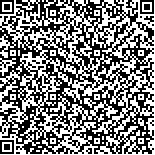| 摘要: |
| 随着全球气候变暖,风暴潮在沿海地区的频率和强度均可能增长,由此引发的海水垂向入侵可能会造成大面积的含水层淡水咸化。同时,由人类活动引起的沿海虾塘咸水养殖规模日益增长,由此引发的咸水垂向入侵可能会导致沿海地区地下水水质及生态环境的恶化。虽然已有一部分学者在海水(咸水)垂向入侵的研究中取得了成果,但由于海水(咸水)垂向入侵过程复杂,其对地下水咸化及恢复规律依然有待深入研究。文章阐述了海水垂向入侵的危害及前人的研究办法,总结了他们的研究成果并得出了海水垂向入侵的影响因子,指出了洪水和养殖活动对沿海地区含水层的威胁。得出的结果如下:研究海水垂向入侵常用的方法包括室内试验和数值模拟;海水垂向入侵主要与地形地貌、含水层性质和水文气象条件有关;虾塘养殖等人类活动可能会成为垂向咸水入侵的潜在来源。建议未来在海水垂向入侵研究中将多种现场观测实验方法结合起来。数值模拟应注重与现场观测实验数据相互验证,模型简化的方式有必要仔细考虑。虾塘养殖等人类活动可能造成的垂向咸水入侵问题应更多地受到关注。 |
| 关键词: 沿海含水层 海水(咸水)入侵 风暴潮 虾塘养殖 水资源 地下水咸化 |
| DOI:10.11759/hykx20230411003 |
| 分类号:P641 |
| 基金项目:广东省水利科技创新项目(2020-27);广东省“珠江人才计划”创新团队项目(2019ZT08G090);国家重点研发计划项目(2021YFC3001000) |
|
| Advancements in seawater vertical intrusion research |
|
HE Lanxuan1, YANG Yun2, SONG Jian2, YU Xuan3
|
|
1.School of Civil Engineering, Sun Yat-sen University, Zhuhai 519082, China;2.School of Earth Sciences and Engineering, Hohai University, Nanjing 211100, China;3.Institute of Soil Science, Chinese Academy of Sciences, Nanjing 210018, China
|
| Abstract: |
| With increasing global warming, the frequency and intensity of marine hazards, such as sea level rise and storm surge, may increase in coastal areas, and the resulting vertical seawater intrusion may cause the salinization of freshwater in aquifers over a large area. Concurrently, brackish water aquaculture in coastal shrimp ponds is increasing because of human activities, and the resulting vertical seawater intrusion may deteriorate groundwater quality and the ecological environment in coastal areas. Although some scholars have achieved substantial results in the study of seawater intrusion, the freshwater salinization and groundwater restoration must be elaborately studied owing to the complexity of seawater intrusion. This study describes the hazards of seawater intrusion and previous research approaches, summarizes their results, identifies the factors influencing seawater intrusion, and highlights the threats of flooding and aquaculture activities to aquifers in coastal areas. The following results were obtained in this study. (1) The common methods used to study seawater pendulous intrusion include indoor experiments and numerical simulations. (2) Vertical seawater intrusion is mainly related to topography, aquifer properties, and hydrometeorological conditions. (3) Human activities such as shrimp pond farming may become a potential source of vertical seawater intrusion. Future studies on seawater intrusion should combine various field observation experimental methods. Numerical simulations should focus on mutual validation with experimental data obtained from field observations, and model simplification methods must be carefully examined. Moreover, possible vertical seawater intrusion caused by human activities such as shrimp pond farming should be extensively studied. |
| Key words: coastal aquifers vertical seawater(saltwater)intrusion storm surges shrimp pond culture water resources groundwater salinization |
